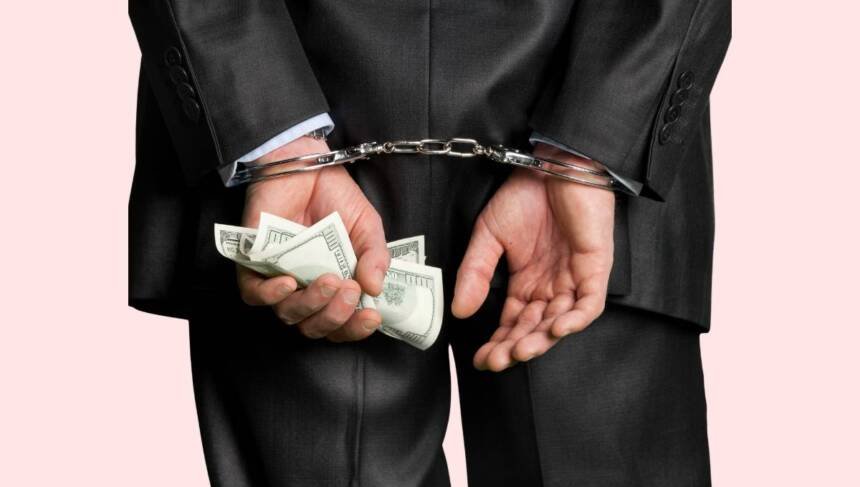Fraud is a serious offense that can have severe consequences in Texas. The Lone Star State takes a strict stance against fraudulent activities, and the penalties can vary significantly depending on the amount of money involved.
In this comprehensive article, we’ll delve into the legal thresholds that define fraud in Texas, exploring the various levels of offenses and their corresponding penalties.
What Constitutes Fraud in Texas?
Under Texas law, fraud is broadly defined as the intentional deception or misrepresentation made to gain an unfair advantage or benefit. This can include a wide range of activities, such as:
- Forgery
- Identity theft
- Credit card fraud
- Insurance fraud
- Investment fraud
- Embezzlement
- Money laundering
Regardless of the specific type of fraud, the amount of money involved plays a crucial role in determining the severity of the offense and the potential consequences.
Misdemeanor Fraud Offenses
In Texas, fraud involving smaller amounts of money is typically classified as a misdemeanor offense. The legal thresholds for misdemeanor fraud are as follows:
- Class C Misdemeanor: This is the least severe level of misdemeanor fraud, involving amounts less than $100. A Class C misdemeanor is punishable by a fine of up to $500.
- Class B Misdemeanor: Fraud involving amounts between $100 and $750 is considered a Class B misdemeanor. The punishment for this offense can include a fine of up to $2,000 and/or up to 180 days in county jail.
- Class A Misdemeanor: If the fraud involves amounts between $750 and $2,500, it is classified as a Class A misdemeanor. The penalties for a Class A misdemeanor can include a fine of up to $4,000 and/or up to one year in county jail.
It’s important to note that while misdemeanor fraud offenses may seem less severe, they still carry significant consequences and can result in a criminal record, which can impact future employment opportunities and other aspects of life.
Felony Fraud Offenses
When the amount of money involved in a fraudulent activity exceeds certain thresholds, the offense escalates to a felony level in Texas. The legal thresholds for felony fraud are as follows:
- State Jail Felony: Fraud involving amounts between $2,500 and $30,000 is typically classified as a state jail felony. The punishment for a state jail felony can include a fine of up to $10,000 and/or between 180 days and two years in state jail. [Source]
- Third-Degree Felony: If the fraud involves amounts between $30,000 and $150,000, it is considered a third-degree felony. The penalties for a third-degree felony can include a fine of up to $10,000 and/or between two and ten years in prison. [Source]
- Second-Degree Felony: Fraud involving amounts between $150,000 and $300,000 is classified as a second-degree felony. The punishment for a second-degree felony can include a fine of up to $10,000 and/or between two and twenty years in prison. [Source]
- First-Degree Felony: When the amount of money involved in the fraud exceeds $300,000, it is considered a first-degree felony, the most severe level of fraud offense in Texas. A first-degree felony can result in a fine of up to $10,000 and/or between five and ninety-nine years or life in prison. [Source]
It’s important to note that these thresholds are subject to change, and the specific penalties can vary depending on the circumstances of the case and the defendant’s criminal history.
Aggravating Factors and Enhanced Penalties
In addition to the amount of money involved, there are certain aggravating factors that can increase the severity of the fraud offense and the potential penalties. These factors include:
- Fraud involving vulnerable victims, such as the elderly or disabled individuals
- Fraud committed against government agencies or organizations
- Fraud involving a position of trust or authority
- Fraud committed as part of a larger criminal enterprise or organized crime
When these aggravating factors are present, the penalties for fraud can be enhanced, potentially resulting in harsher sentences and higher fines.
Seeking Legal Assistance
Fraud charges in Texas can have severe consequences, ranging from substantial fines to lengthy prison sentences. If you or someone you know is facing fraud charges, it is crucial to seek legal assistance from an experienced criminal defense attorney.
A skilled attorney can provide guidance on the legal thresholds, potential defenses, and strategies for mitigating the consequences of the charges. They can also help navigate the complex legal system and ensure that your rights are protected throughout the process.
Conclusion
Fraud is a serious offense in Texas, and the legal thresholds for determining the severity of the offense are based primarily on the amount of money involved.
From misdemeanor offenses involving small amounts to felony offenses involving hundreds of thousands or even millions of dollars, the consequences can vary significantly.
Understanding these legal thresholds is crucial for individuals and businesses alike, as it can help prevent inadvertent violations and ensure compliance with Texas laws.
By being aware of the potential consequences and seeking legal assistance when necessary, individuals can protect themselves from the severe penalties associated with fraud offenses in the Lone Star State.



